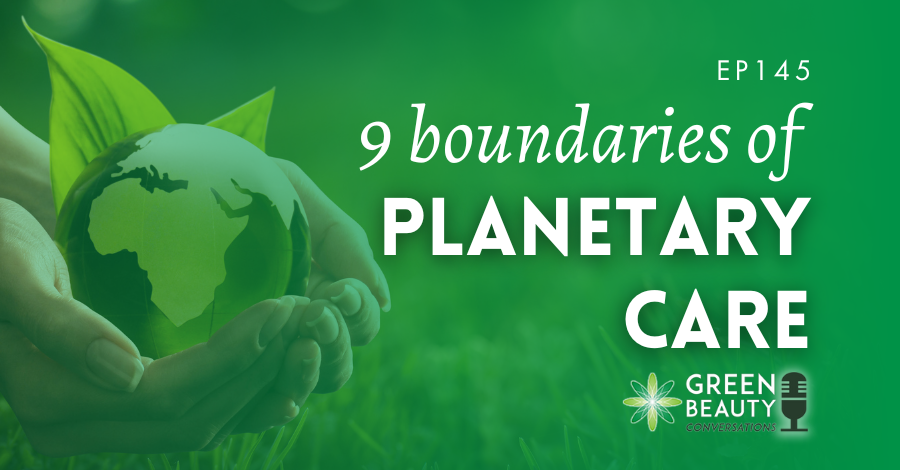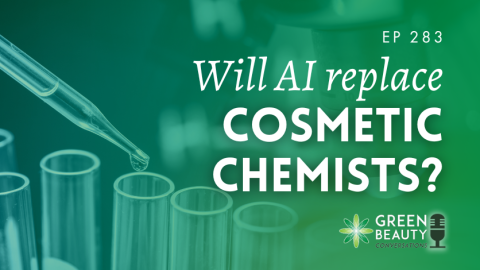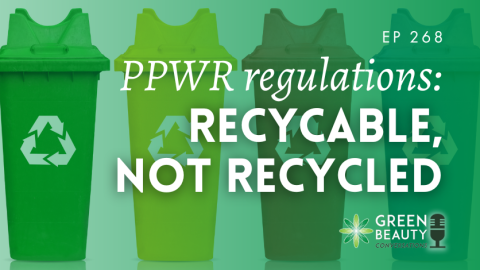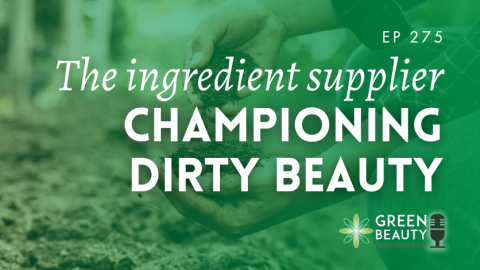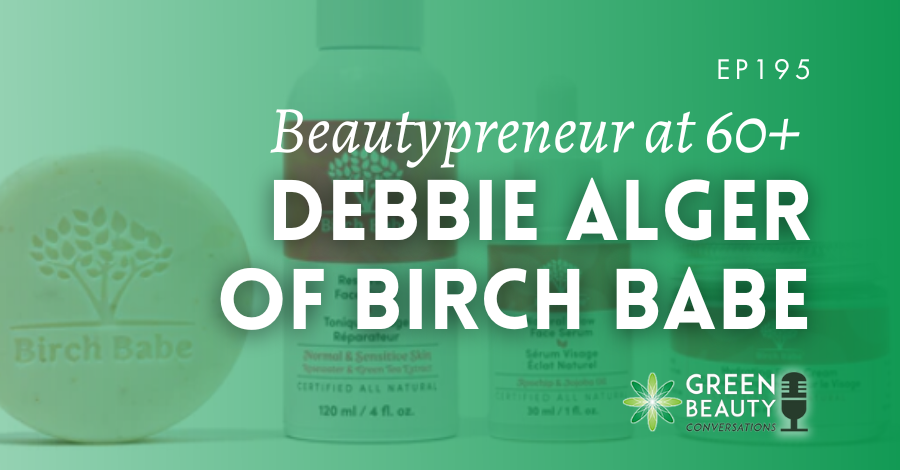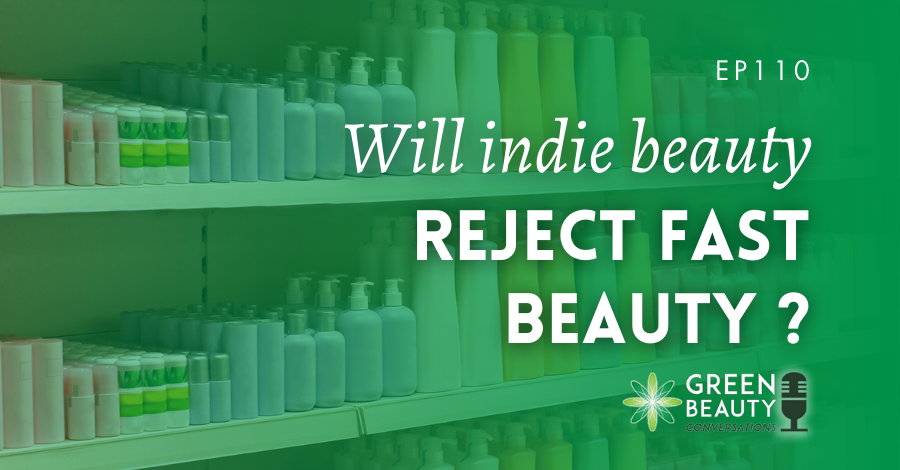Would you like to hear a single, simple definition of sustainability that you can apply to your daily life in the beauty industry, whether as an indie business founder or consumer? The beauty industry media is clamouring to provide one, and at Formula Botanica, we’ve had journalists approach us for short sound-bites on what sustainable beauty means.
Unfortunately, things aren’t so simple. By focusing only on this or that bottle for our beauty products, or whether plant A is a more sustainable option in our formulations than plant B, we are all guilty of missing the big sustainability picture. Of course, starting small and taking steps like changing packaging, seeking out refillables and formulating solid beauty products do make a difference. But we also need to think big if we are to see a more sustainable beauty sector.
Our guest in this episode, Khandiz Joni, Chartered Environmentalist, independent sustainability consultant and, as she describes herself, a “sustainable-ist”, returns to the Green Beauty Conversations podcast. Formula Botanica CEO Lorraine Dallmeier invites Khandiz to discuss the big conversations the beauty industry, both small and large scale, needs to have about issues fundamental to sustainability, such as its use of land and water, role in agriculture and how it contributes to biodiversity loss.
A sustainable beauty industry thinks big and beyond plastic. @FormulaBotanica talks to sustainable-ist, artist and environmentalist @Khandiz Joni about the big picture of sustainable beauty. #IamImpact #sustainability… Share on X
In this episode on the big sustainability issues in beauty, you will hear:
- With beauty and beauty products seen as refined and delicate, the beauty industry, unlike fashion, has been less engaged in addressing the very tangible impact of its business and products on big-picture issues that impact sustainability.
- Khandiz covers the 9 planetary boundaries or tipping points that are critical if the planet is to be maintained sustainably. They range from biosphere integrity and climate change to the availability of fresh water for all and our use of land. She stresses that all nine are interconnected and each has a tipping point that, once reached, irrevocably impacts the others too.
- The word “sustainability” has been appropriated as a marketing tool and is often deployed in talking about single issues such as reducing plastic. This deflects attention from the fact that the beauty industry in its current state is not sustainable.
- The beauty industry exists to make money for both large and small companies, and it drives even greater consumption. It needs to think about how, in the making of beauty products, it can prevent the depletion of and harm to planetary resources like land, plants and water, and how that impacts indigenous communities.
Key takeouts include:
- The beauty industry has not seen anywhere near the level of activism against its environmental impacts as has fashion. This is likely the result of several factors, such as the lack of statistics on beauty’s impact on the planet, the fact that beauty products go under the radar as small consumer purchases, and the fact that there is no activist body focused solely on beauty as there is with fashion.
- To address big-picture issues of sustainability, the beauty industry needs to change its conversation. Khandiz gives the example of beauty, which thinks of itself as an agricultural industry as it relies heavily on nature for ingredients. This perception shift could help generate solutions to promote sustainability.
- At the moment, businesses in the beauty industry are cherry-picking their own definitions of sustainability to suit their own narrow lenses.
- Beauty relies on land for the production of crops used as cosmetic ingredients. Land use and abuse are fueling biodiversity loss. Biodiversity is equally important for the planet’s sustainability as climate change. Yet, few in the beauty industry are joining the dots and making connections between their industry and biodiversity.
Meet our guest
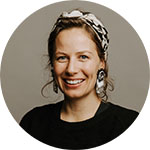
Passionate about storytelling, creative thinking, and systems change, Khandiz channels her entrepreneurial spirit into advocacy for an improved understanding of sustainability. Khandiz has worked in the film, media, and creative sectors for 20 years as a hair and makeup artist specialising in green beauty. She has run an award-winning creative agency for eco-ethical fashion and beauty brands, published an online beauty platform that celebrated green, natural and sustainable beauty and guest-written for various publications, including WGSN.
Khandiz is an assessor for the Cambridge Institute for Sustainable Leadership (CISL). She communicates for influence and impact, is an associate lecturer at the London College of Fashion and a regular panelist and guest speaker.
Her most recent project, The I AM IMPACT Project, looks at humanity’s relationship with the earth’s tipping points. She uses art (body painting) and photography to start conversations that encourage personal agency in response to the most significant challenges we collectively face.
Find Khandiz at:
I AM IMPACT Project
Instagram: @Khandiz
Leave us a comment
Lorraine Dallmeier is a Biologist, Chartered Environmentalist and the CEO of Formula Botanica, the award-winning online organic cosmetic science school. Read more about Lorraine and the Formula Botanica Team.

